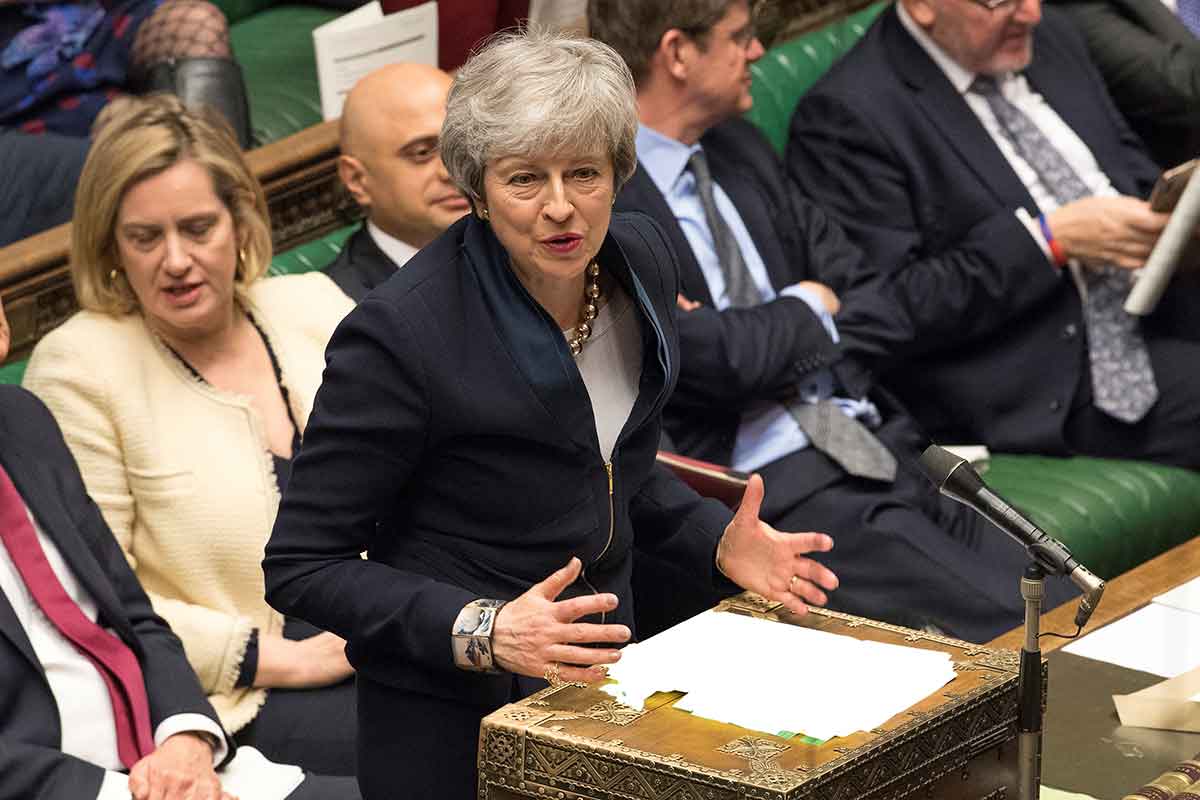Prime Minister Theresa May has asked the European Union (EU) to delay Brexit until 30 June, setting up a battle with the bloc ahead of a key summit next week.
May wants an extension to 30 June and aims to avoid holding European elections next month, which would be politically toxic at home. It’ll be up to the EU to decide on her request next week, and she’s likely to be rebuffed. While the bloc is still divided on the issue, EU President Donald Tusk is pushing for a delay as long as a year.
May cited talks with opposition Labour Party Leader Jeremy Corbyn aimed at breaking the Brexit impasse as a reason for further delay in a letter to EU Council President Donald Tusk. It’s the same length delay she asked for last month, which the bloc rejected.
“It is frustrating that we have not yet brought this process to a successful and orderly conclusion,” May wrote. “The United Kingdom (UK) government remains strongly committed to doing so."
With her options dwindling, May is desperately seeking to get an agreement through Parliament, which has defeated it three times. Talks with Corbyn are yet to show much sign of progress, even as May is said to be willing to discuss proposals she’s long rejected, including a second referendum.
Corbyn hinted on Friday that he’s in no rush to reach an agreement with May, saying he doesn’t think "European elections are an issue one way or the other." That suggests the government might struggle to have anything concrete to talk to EU leaders next week.
In her letter, May said the government would prepare for European parliament elections – due to be held between 23 and 26 May – in case Parliament hasn’t ratified the Brexit divorce deal in time. The aim would be to cancel the elections if a deal is done in time.
“It is in the interests of neither the United Kingdom as a departing Member State, nor the European Union as a whole, that the United Kingdom holds elections to the European Parliament,” May wrote.
‘Compromise needed’
May said her discussions with the opposition are focused on the future relationship with the EU, and not on reopening the Withdrawal agreement she negotiated with the bloc. That chimes with the EU position that it can rewrite its declaration on future ties but won’t reopen the divorce deal.
“If a consensus is going to be found, compromise will be needed on all sides, in the national interest,” she wrote.
Tusk favours offering the UK a one-year extension, though some governments opposed such a long delay, officials said. His proposal would include an escape clause to allow the UK to leave the EU early when the deal is approved.
The EU’s remaining 27 leaders, who meet May in Brussels for a summit on Wednesday, have to agree on any offer unanimously and it’ll be up to them to forge a common position. France is leading a small group of countries opposing a long extension, but officials said they don’t expect any leader to veto a delay outright. France said the year-long delay proposal was a "clumsy trial balloon."
The EU has previously said any long extension would be conditional on a “clear plan” for the way forward, or a political “event” such as another referendum or general election. But May’s efforts to form a cross-party position with Corbyn, and pledge to hold votes in Parliament on the desired outcome, will probably be enough, according to officials.
Without an agreement at the EU summit, the UK would leave the bloc on 12 April if Parliament doesn’t approve the deal before then – crashing out into legal limbo that would snarl trade and freeze markets. That’s a scenario Parliament is working to prevent, and May has said she won’t lead the country out of the bloc without a deal unless lawmakers consent to it.
While any extension would be welcomed by most businesses, which are desperate to avoid a no-deal outcome, a delay until 30 June would still have an economic cost. The risk of opting for a relatively short extension is that companies and consumers remained trapped by uncertainty, and continue to defer spending and investment decisions until they get more clarity. Meanwhile, Bank of England policy makers would also be forced to continue their current holding pattern. - Bloomberg
